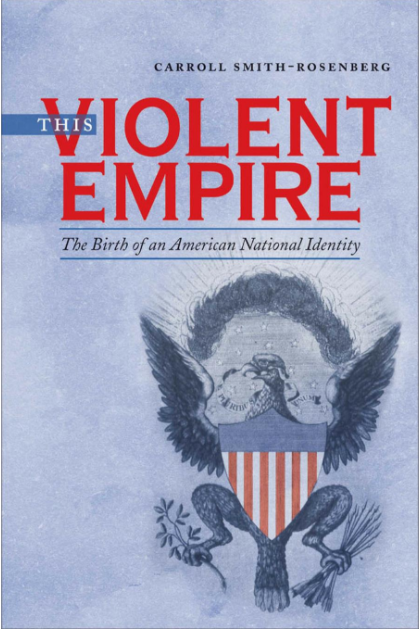 It’s a rainy day here where I am in Thailand and I’ve had the house to myself so with no other distractions it’s a time to return to blogging. My rss feed informs me that a number of biblical scholars have chosen today to write about (or simply quote) the Declaration of Independence as if it were a sacred document. I hate being left behind so I’ve been catching up on some American history myself and one piece of research that seems to make a lot of sense to me is Carroll Smith-Rosenberg’s This Violent Empire: The Birth of an American National Identity (2010). So here are two extracts.
It’s a rainy day here where I am in Thailand and I’ve had the house to myself so with no other distractions it’s a time to return to blogging. My rss feed informs me that a number of biblical scholars have chosen today to write about (or simply quote) the Declaration of Independence as if it were a sacred document. I hate being left behind so I’ve been catching up on some American history myself and one piece of research that seems to make a lot of sense to me is Carroll Smith-Rosenberg’s This Violent Empire: The Birth of an American National Identity (2010). So here are two extracts.
The first reminds me of my undergraduate studies of interest-groups behind Federalist Papers, the Declaration of Independence and Constitution and that have continued to hold power up to today:
For more than two hundred years, citizens of the United States have followed Timothy Dwight in proclaiming their nation “the favorite land of Heaven,” a place of “peace, purity and felicity.” The rolling cadences of the Declaration of Independence, we insist, proclaim us a land of liberty and equality, our Constitution, a government of law and justice. But, shadowing the image the founders sought to project as wise and disinterested statesmen, observers caught sight of the hidden figures of speculators, price gougers, embezzlers, deceivers, and rogues.
The economically and politically discontented — Daniel Shays’s hardscrabble farmers, the Whiskey rebels of western Pennsylvania, Antifederalist critics — were not the only ones to see the new nation’s mercantile and political elite in this light. Many European Americans across the economic and regional spectrum continued to hold dear the civic ideals of classic republicanism: its fears of credit and speculation, its commitment to disinterested heroism and Spartan discipline. Others espoused the commercial republican celebration of industry and frugality.
Both groups watched with mounting ill ease as the national elite grew increasingly at home with the new ways of fiscal capitalism, their embrace of spectacles and the spectacular, of risk and, yes, deception. (p. 414, my bolding and formatting)
The second extract from the conclusion to the book hits a nerve — social divisions, rhetorical and literal violence — that is far more exposed today than it was when the book was first published: Continue reading “The Declaration of Independence Disconnect”
